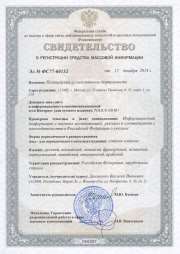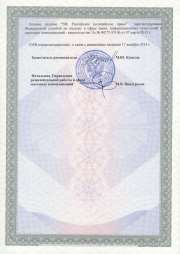|
MAIN PAGE
> Journal "Police and Investigative Activity"
> Rubric "The police and issues in the fight against corruption"
|
The police and issues in the fight against corruption |
|
Bukalerova L.A., Serous A.V. - Great Britain’s and the USA’s experience in combating bribery of foreign public officials and the officials of a public international organization
|
|
pp. 1-7
|
DOI: 10.25136/2409-7810.2019.1.29057
Abstract: The authors consider the peculiarities of combating bribery of foreign public officials and the officials of international public organizations in the USA and Great Britain. The authors find out that responsibility is imposed for bribery of a foreign official per se and of politically exposed persons who do not hold a public office at the moment but can use their political influence in favour of a briber. Therefore, bribery can be aimed at any other person if it is reliably known that the whole bribe or its part will be taken by these officials or politically exposed persons. The authors use the methods which are the evolution of scientific research methods known in and tested by the legal science. They ensure the reliability of the acquired results. Based on the research and the study of foreign experience and international documents, the authors clarify the characteristics of the crimes in question. The authors conclude that the in the Anglo-Saxon legal system, the lawmaker has implemented the basic international standards in the field of responsibility for bribery of foreign public officials and the officials of public international organizations. Particularly, the law system establishes responsibility for both active and passive bribery of such persons in particular legal regulations; besides it formalizes the responsibility of legal entities in this field.

Shimshilova E.S., Bukalerova L.A. - Countering corruption-related crimes committed in business entities: international-legal fundamentals
|
|
pp. 9-21
|
DOI: 10.25136/2409-7810.2018.4.28166
Abstract: The authors discuss such aspects of the topic as the peculiarities of international standards in the sphere of responsibility for the deeds infringing on the interests of the service in business entities. The authors reveal that in the international law there are two independent forms of legal responsibility for corruption-related crimes: criminal responsibility and civil responsibility. However, public and private responsibility can be imposed simultaneously for one and the same corruption-related crimes. The article also studies the documents of the Group of States against Corruption (GRECO), which Russia also belongs to. These documents are particularly important in terms of establishing international standards of countering corruption-related crimes. The proposed set of methodological and analytical instruments is the evolution of research methods, well-known and widely applied by the legal science. These instruments guarantee reliability and trustability of the expected results. The authors formulate the following conclusions: the international law prioritises criminal responsibility for corruption-related crimes in business entities; the UNO’s documents contain a wider list of corruption-related crimes than the EU’s documents; all international acts admit that the imposition of criminal responsibility on a legal entity for corruption-related crimes committed in business entities does not exclude the possibility to impose criminal responsibility on a private individual for the same deed. The authors emphasize that a deed should be intentional. Most provisions of international documents have already been implemented within the Criminal Code of the Russian Federation. The issue of the possibility to impose criminal responsibility on legal entities for corruption-related crimes committed in business entities is worth further studying.

Stepanenko D.A., Stepanenko R.A. - Tactical operation “Detaining a corruption mediator (supposed conciliator) - and then a bribe recipient - with a mainour”
|
|
pp. 29-39
|
DOI: 10.25136/2409-7810.2019.2.29608
Abstract: Mediation in bribery giving is hard to be detected and proved. Law enforcement practice lacks effective methods of combating crimes connected with mediation in bribery giving and graft (art. 291.1 and 204.1 of the Criminal Code of the Russian Federation), and supposed mediation usually qualified as fraud (art. 159 of the Criminal Code). The subject of this research is the scope of possibilities of conducting a tactical operation “Detaining a corruption mediator (supposed conciliator) - and then a bribe recipient - with a mainour” in order to improve these crimes combating. The aim of this research is to define the elements of this tactical operation and the opportunities to conduct it to improve the effectiveness of detecting, solving and investigating mediation in bribery giving. The authors use the dialectical method of scientific cognition, general scientific and specific methods including synthesis, analysis, forecasting, comparison and others. Based on the analysis of scientific discussion and investigative practice and precedents, the authors describe the algorithm of conducting this tactical operation which usually has two stages: actions in relation to a corruption mediator (supposed mediator) and then - a bribe recipient, if there was any. Special attention is given to the preparation phase of the first stage, and the presence of the reasons for operative-investigative operations, and elaboration of sound trial prospects of the future criminal case even before its opening. The authors conclude that the offered system of tactical and criminalistic recommendations, if it is used, can improve the effectiveness of combating mediation in bribery giving.

|
Polukarov A.V. - Constitutional, Administrative and Criminological Security in the Social Sphere
|
|
pp. 31-44
|
DOI: 10.7256/2409-7810.2016.1.18108
Abstract: The article focuses on the problems of constitutional, administrative and criminological issues associated with the fight against corruption in the social sphere. The author has carried out a detailed theoretical and legal analysis of the constitutional, administrative and criminal-legal regulation of countering corruption in the social sphere from the standpoint of constitutional law. The author of the article discusses different positions on the definition of fighting corruption. The main attention is paid to the development of methods and methodology of criminological regulation of countering corruption in the social sphere. In addition, the article provides the theoretical and legal analysis of the concepts of development of administrative law in the context of combating corruption in our country. The methodological basis of the article includes recent researches on the theory of knowledge. In the course of the study the author has applied general philosophical and theoretical methods (dialectics, systems approach, method, analysis, synthesis, analogy, deduction, observation and modeling), traditionally legal methods (formal logic) as well as methods used in concrete sociological research (statistical, expert evaluation, etc.). The main conclusion drawn from the results of the study is that at the present time to ensure law and order in the social sphere it is necessary to improve forms and methods of legal and criminological guarantees of anticorruption measures. The main contribution made by the author of the article is the need of the development of constitutional-legal and administrative regulation of countering corruption. The novelty of the research is caused by the fact that the author makes proposals for the development of forms and methods of legal regulation of the social sphere.

|
Chashnikov V.A. - Anti-corruption education as a means of combating corruption in the Internal Affairs bodies
|
|
pp. 39-48
|
DOI: 10.7256/2409-7810.2014.4.13886
Abstract: The subject of the research is the means of combating corruption in the bodies of Internal Affairs. The subject of the research is anti-corruption education. The object of the research is the anti-corruption education, which consists of the gaining and the renewal of knowledge of the bodies of Internal Affairs personnel in the sphere of combating corruption, and the formation of the anti-corruption code of conduct. The author considers the aspects which show that the efficiency of anti-corruption education in the system of the bodies of Internal Affairs will be successful only when the anti-corruption educational programs will be worked out for different categories of the Internal Affairs bodies personnel. The special attention is paid to the fact that within these programs should be studied not only the general questions of the state anti-corruption policy, the other states’ experience in corruption prevention and combating, and the relevant criminal legislation, but also the special measures and mechanisms of combating corruption. The author uses the general philosophical methods (dialectics, the system approach, analysis, synthesis, analogy, deduction, observation, modeling), the traditional juridical methods (formal logical), and the methods which are used in the special sociological research (statistical, expert evaluation, etc.). The author comes to the conclusion that the measures which are being realized in the bodies of Internal Affairs, deal with the provision of data about the incomes, the expenditures, the property, and the property commitments. The author concludes that the informing of the employer representative by the Internal Affairs bodies personnel about the facts of inclinations to commit the delinquency of a corruption character, and the anti-corruption inspections contribute to the combating corruption work. The originality of the article consists in the fact that the anti-corruption education is the most efficient and perspective way of combating corruption in the bodies of Internal Affairs.

|
Polukarov A.V. - Peculiarities of an Object of Bribery in the Sphere of Health Care
|
|
pp. 43-48
|
DOI: 10.7256/2409-7810.2016.2.17370
Abstract: It should be noted that now the bribery in health system is put on a stream, reaches huge scales, there is an opinion that 40% of "pocket payments" are the share medics of those services which rely free of charge. The author in this work conducts research the financial relations between the doctor and the patient often which often are under construction on an informal basis and on the basis of the received results tries to develop definition of object and an object of a bribe in health care sector, and also in system of pharmaceutics. The methodological basis of research are general scientific methods (a system and structural method, an analogy method, the general logical receptions: analysis and synthesis, induction and deduction), and also special methods of legal research (comparative method, extrapolation method, legallistic method, etc.) . The main conclusion of the conducted research - the object of bribery in health care, as well as in other social sphere is more multidimensional. According to the author, besides the public relations protecting government bases, as object it is necessary to recognize the public relations protecting bases of the social sphere, area of social protection of the citizens who have got into a difficult life situation including children without parental support, disabled people and other groups of citizens, protection of public health.

|
Krasnenkova E.V., Gladkikh A.Y. - The peculiarities of criminal activities concealment by the Internal Affairs bodies officers
|
|
pp. 49-63
|
DOI: 10.7256/2409-7810.2014.4.14098
Abstract: The article considers criminalistic peculiarities of criminal activities. In particular, it touches upon the actions of the Internal Affairs bodies officers, aimed at criminal activities concealment. The object of the research is social relations, aimed at combating criminal activities of the Internal Affairs bodies officers. The subject of the research is criminalistic peculiarities of the Internal Affairs bodies officers’ criminal activities. The author reveals the main and the specific ways of criminal activities concealment. The concealment of crimes, committed by the IA bodies officers, but not connected directly with their professional activities, are of a particular interest. The methodology of the research is based on the up-to-date achievements of epistemology. The author uses the theoretical and general philosophical methods (dialectics, the system approach, analysis, synthesis, analogy, deduction, observation, modeling), the traditional juridical methods, and the methods which are used in sociological research. The author comes to the conclusion, that the most frequent crimes of the IA bodies officers, conditioned by mercenary ends, are bribery and abuse of official powers. Consequently, the ways of these crimes concealment are the masking of criminal activity, falsification of the case papers, and concealment of crimes, committed by the IA bodies officers, but not connected with their professional activities.

|
Kostennikov M.V., Kurakin A.V., Vatel' A.Y. - Anti-corrupt and ethic standards of public servants' code of behaviour
|
|
pp. 52-76
|
DOI: 10.7256/2409-7810.2014.2.13873
Abstract: The article considers the legal and organizational problems of realization of anti-corrupt standards of public servants' code of behaviour. It is stated that these standards are the part of their administrative and legal status. The author notes that with the help of various administrative and legal measures the state forms the milieu which is not susceptible to the deliquencies connected with corruption. Corruption threatens the Russian national security, impedes the development of democratic institutes and civil society in Russia, hampers the realization of citizes' constitutional rights. Corruption negatively affects the economical development, the development of the financial system and the infrastructure of the Russian state. The methodological base of the article contains the up-to-date achievements of epistemology. The author uses general philosophical, theoretical methods. Corruption in the state bodies favours the development of organized crime, creates conditions for the development of hotbeds of extremism and terrorism, threatens the realization of national projects, undermines all state legal reforms which are being held in Russia. These and other problems make it necessary to create administrative and legal mechanism of combating corruption in the work of public servants, and to establish the institute of administrative justice.

|
Kurakin A.V., Kostennikov M.V. - Administrative legal counteraction against corruption within the state service system and in the activities of the police officers of the Russian Federation and foreign states.
|
|
pp. 65-83
|
DOI: 10.7256/2306-4218.2013.1.735
Abstract: The article is devoted to the administrative and organizational problems of fighting corruption in the official activities of the police officers, as well as the officers of the state executive bodies. The author describes negative influence of corruption on the development of economy, financial system of a state, and internal affairs bodies. It is pointed out that one of the key causes of the growing corruption in the internal affairs bodies is the low quality of normative legal basis for their activities. The author views the key goals of administrative justice, and studies the foreign experience in the sphere of fighting corruption. The article also deals with the conflict resolution mechanisms within the state service system, as well as anti-corruption measures in the state executive bodies. The detailed analysis of the special commission on the investigation of police corruption in the USA is included, as well as information on the prestige of police work in the USA and the requirements to the dual job-holding in this sphere. The author describes the offences, which may lead to corruption in police, internal affairs bodies and other executive bodies. The article also contains propositions for the minimization of corruption offences within the state administration system.

|
Ryabchenko O.N. - On the Question about Order Management as an Object of Crime
|
|
pp. 68-84
|
DOI: 10.7256/2409-7810.2015.4.18017
Abstract: One of the difficult and unsolved problems of the Russian criminal and legal science is the definition of the object of crimes against administrative order. Despite numerous attempts, this problem still remains an unresolved issue of Russian criminal and legal science. From the point of view of methodology it is important to distinguish, at least, two directions of the scientific discussions with different shades of meaning: discussions about the object of crimes of the studied group of offences in general and discussions about the maintenance of an order of management as a patrimonial object of crime. The methodology of the research involves a set of general scientific and specific research methods based on the principles of scientific objectivity, systemacity and historicism. Such selection of research methods is caused by the research object, subject, objectives and problems. Based on the analysis of the concepts presented in literature, the author of the article makes a conclusion that it is obviously possible to introduce more clarity into the existing system of knowledge about the object of crimes against administrative order. The object of such crime should be the public relations arising between citizens, on the one hand, and both the government and municipal bodies (representatives of these bodies), on the other hand, in the course of administrative activity of the latter.

|
Kurakin A.V. - Combating corruption principles and their implementation in the sphere of the interior
|
|
pp. 70-93
|
DOI: 10.7256/2409-7810.2015.1.14256
Abstract: The subject of the article includes the legal and organizational problems of combating corruption in the public service of the Russian Federation. The object of the article is a range of public relations in the sphere of corruption prevention. The author pays special attention to the content of the principles of combating corruption. The article notes that in the process of reforming of Russian public service the principles of relationship between the civil service and other forms of public service have been established and the development of anti-corruption legislation has been started. Particular attention is paid to the theory of the problem.The methodology of the article is based on the modern achievements of epistemology. The study uses the general philosophical methods (dialectics, systematic method, analysis, synthesis, analogy, deduction, observation, modeling), the traditional legal methods (formal logic), as well as the methods used in empirical sociological studies (statistics, expert assessment et al.).The main conclusions of the research are devoted to the improvement of anti-corruption legislation. The novelty of the study lies in the fact that it offers a comprehensive assessment of the principles of combating corruption, and substabtiates the use of the system approach in combating corruption offenses in the public service. A special contribution of the article consists in the fact that it's made a conclusion that achievement of significant results in combating corruption is possible only on the base of a complex approach to the outlined problems.

|
|






